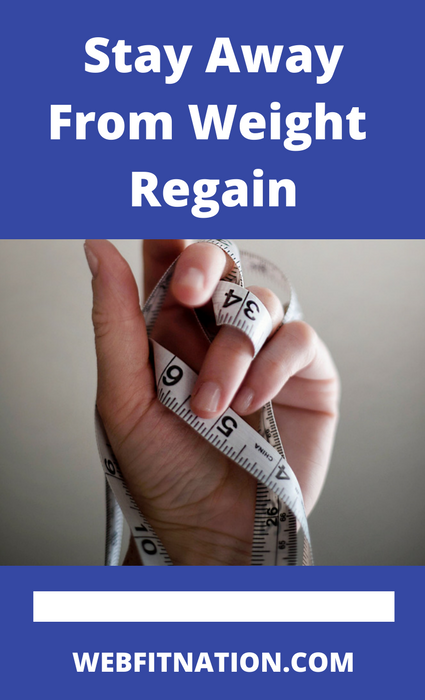Losing fat is really pretty simple. You've lost weight before. Keeping it off is a totally different ball game. About 90 percent of people who lose weight gain it all back. What in the world is the 10 percent of people who lose weight doing to keep it off? Do they have a secret we don't know about?
Looking over studies and using my own personal experience through coaching and living a healthy lifestyle I have put together a short list of things you can put in your arsenal to combat weight regain.
1. Don't be afraid to fail hard and make mistakes. People that keep weight regain at bay are not afraid to try something, fail, modify, then try again until they build their own personalized and sustainable plan. Seems obvious, but that's not how most people approach fat loss. They instead adopt specific "restrictive diet" plans, which can be a good start. But when they fall off the wagon, they don't tweak the plan. Instead, they quit trying altogether, often claiming "that diet didn't work."
Diets work, people don't.
Let's set something straight: all diets work if calories are low enough and/or activity is high enough. But not all diets are healthy and most aren't sustainable. They do lead to fat loss, but it's your responsibility to make the transition from "dieting or calorie restricting " to everyday healthy and enjoyable eating. Your initial diet plan can't do that for you. You need a plan to come out of that calorie restrictive place so you can maintain the weight loss.
People who lose fat and keep it off have figured this out. They adapt, experiment, and think about how to approach the lifestyle in a way to make it more sustainable.
2. Do away with the cheat meals. Those who lose a significant amount of fat and keep it off skip the weekend and holiday splurges. Disrupting your bodies energy homeostasis is hard enough. Giving into splurges just makes losing fat and keeping it off even harder. Control the mentality behind how you approach food at all times. There is no inherently bad food. Only portions that are not beneficial to your goals. Don't eat like a jack a$$.
After all, the recovering drug addict doesn't indulge in his favorite drug because it's his birthday, and he doesn't get wasted on the weekend as a reward for "being good" all week. Those who struggle with staying lean adopt the same mindset to keep the fat off.
3. Lack of sleep makes you can increase your chances of weight regain and can even lead to muscle loss, regardless of diet. Since when did a lack of sleep become a bragging right? "Dude, I only sleep 5 hours a night!" Congratulations. While you may be able to "function just fine" on a few hours of sleep, doing so still short changes your body composition goals.
Where do you think your recovery really comes from? Babies tend to do two things after they are born – eat and sleep a lot. Why? Because to grow, the body requires a tremendous amount of rest. So if you aren't getting an adequate amount of sleep (7-8 hours), then when are you giving your body the extra time it needs for this process to take place?
You will have to manage your behaviors for the rest of your life. Being at a healthy body weight isn't easy in the world we live in today.
Genetics and environment load the gun for being overweight or obese, but BEHAVIOR pulls the trigger.















